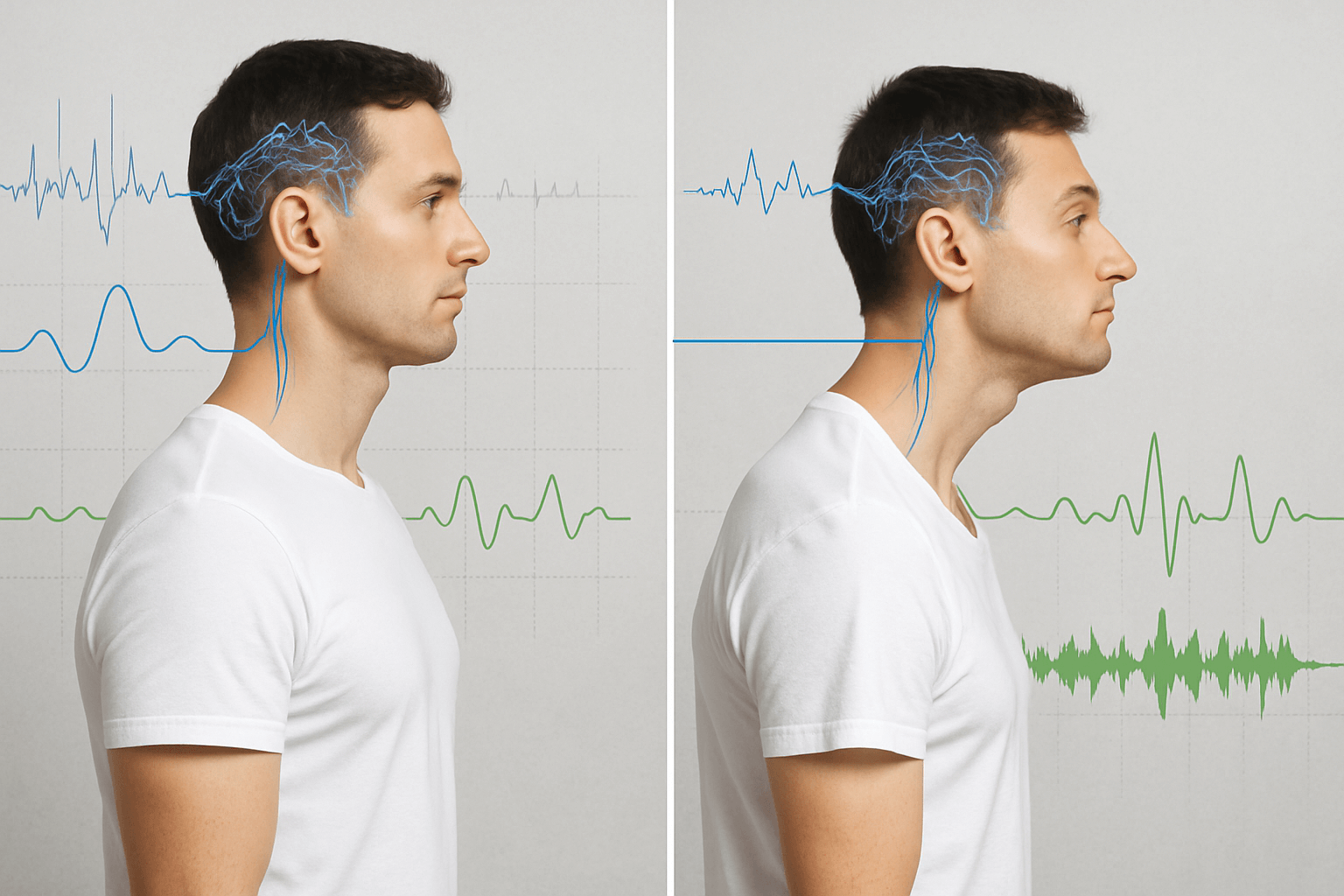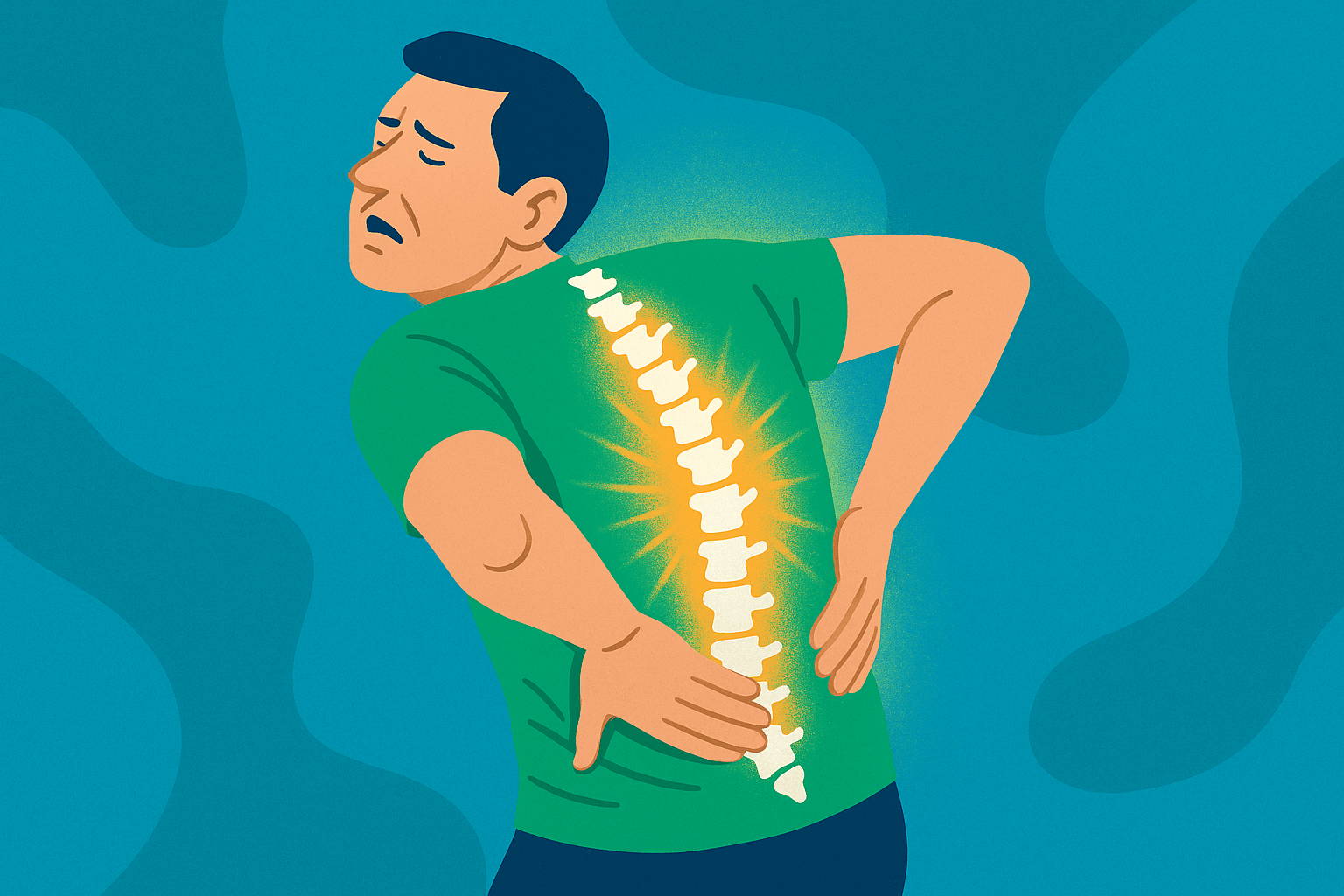Ever had a bad day where your body felt slumped—and so did your mood? Turns out, that’s no coincidence. The relationship between posture and mental health is stronger than most people realize. What we once thought was just about avoiding back pain is actually connected to anxiety, depression, confidence levels, and even cognitive performance.
In this blog, we’ll dig into how your spinal alignment can make or break your mindset—and how fixing your posture could be the mental reset you didn’t know you needed.
Jump to:
TLDR – Quick Guide
- Slouching isn’t just bad for your back—it’s bad for your brain.
- Studies show poor posture contributes to anxiety, low self-esteem, and fatigue.
- Upright posture can improve confidence, mood, and decision-making.
- Mindful posture practices can be a game-changer in managing stress and mental load.
- You don’t need to become a yoga guru—small changes = big results.
Detailed Breakdown
1. The Brain-Back Connection Is Real
Science has officially weighed in: posture affects mental health. A 2017 study published in Health Psychology found that people who sat upright reported higher self-esteem, better mood, and less fear compared to those who slouched. Why? Body positioning influences how your brain processes emotions. When you slump, your brain defaults to stress, anxiety, and even depressive thoughts. When you sit tall, it triggers confidence and alertness.
2. Slouching = Stress Response
Bad posture activates the body’s sympathetic nervous system—a.k.a. fight or flight. That means just by slumping, your body thinks you’re in danger. Chronic stress response leads to fatigue, irritability, and hormonal imbalances. It’s a fast-track to burnout.
3. Confidence and Body Language
Your posture is also broadcasting your mood—whether you realize it or not. Research from Amy Cuddy and Harvard colleagues found that “power posing” (think: upright chest, open stance) boosts testosterone (confidence hormone) and reduces cortisol (stress hormone). Good posture isn’t just how others see you—it changes how you see yourself.
4. Cognitive Clarity and Energy Levels
Ever wonder why you can’t concentrate when you’re slouched on the couch? That’s because poor posture decreases oxygen intake and blood flow to the brain. That mental fog you’re fighting? It might be coming from your spine. When posture is corrected, oxygen and nutrient delivery to the brain improves—so does your focus.
5. Posture as a Mental Health Tool
The best part? This is totally within your control. You can use your body to hack your brain. Incorporate posture checks throughout the day. Try posture-friendly stretches like the Bruegger’s Relief Position. Invest in a chair that supports spinal alignment. If you need help, posture-focused treatments like Advanced BioStructural Correction™ (used by Upright Posture) are gaining traction for a reason.
Implementation Tactics
Daily Posture Habits
- Set posture reminders on your phone every 60 minutes.
- Align your screen to eye level to avoid neck-forward posture.
- Use lumbar supports or ergonomic cushions when sitting.
Exercises That Help
- Wall Angels: Great for strengthening upper back muscles.
- Chin Tucks: Reduce neck strain.
- Planks: Improve core strength.
Mental Health Check-Ins
Combine posture correction with mindfulness practices:
- After every posture adjustment, take three deep breaths.
- Notice if your mood or energy shifts—track it daily.
Key Takeaways
- Poor posture isn’t just a physical problem—it’s a mental one too.
- Sitting and standing upright can boost mood, reduce anxiety, and improve focus.
- The mind-body connection is real: fix your spine, elevate your mind.
- Small posture changes can have massive impacts on your mental well-being.
- Don’t underestimate how much better you can feel by straightening up.
FAQs
1. Can bad posture really cause depression or anxiety?
Yes. Chronic slouching activates stress responses in the body, which over time can contribute to feelings of anxiety and low mood. Scientific studies have shown links between posture and emotional regulation.
2. Is fixing my posture enough to improve my mental health?
While posture isn’t a magic cure, it can significantly support mental health when combined with other strategies like therapy, exercise, and proper sleep. Think of it as one part of your wellness toolkit.
3. What’s the fastest way to improve my posture?
Start with small, consistent changes. Use reminders to sit upright, adjust your workstation ergonomically, and do basic posture exercises daily.
4. Can posture affect sleep and mental fatigue?
Absolutely. Poor posture during the day can lead to muscle tension and discomfort at night, which affects sleep quality. Better posture = better rest = better mood.
5. Should I see a professional for posture correction?
If you’re dealing with chronic pain or serious alignment issues, yes. Professionals like chiropractors or physical therapists can offer tailored guidance. Clinics using Advanced BioStructural Correction™ can be especially effective.






